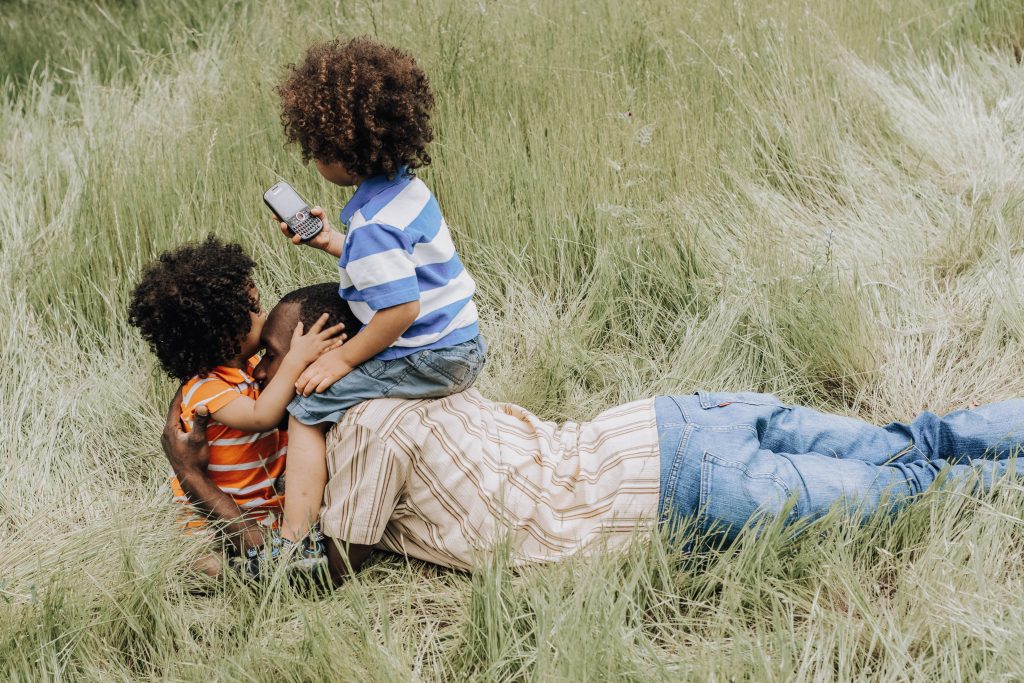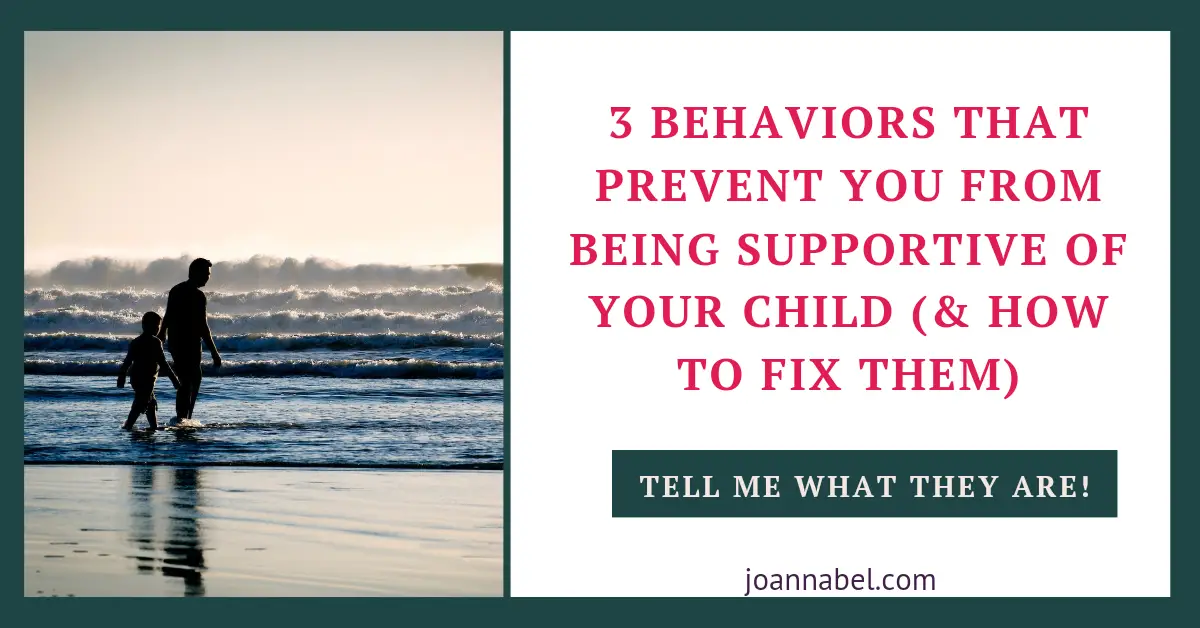Interested to understand more about the Rejecting Parenting Style and Rejecting Parents? Stick till the end of this post to uncover the most important things concerning rejecting parenting.
What Is The Rejecting Parenting Style And Are You A Rejecting Parent?
The rejecting parenting style is a style of parenting recognisable by disconnected (disengaged and distant) relationships and a highly rigid approach to control, structure, and discipline (inflexibility).
Even though the rejecting parenting style usually remains undiscussed in public discourse, what was revealed is that it comes in combination with neglecting (uninvolved) parenting style.
In this post, we’ll talk about:
- What the rejecting parenting style is and it looks like
- Who rejecting parents are
- What the effects of rejecting parenting style on child development and child behavior are
- The difference between permissive parenting and rejecting (strict) parenting,
And more!
Let’s get right to it!
Note: Although I am a Clinical Social Worker, engaging with this website does not establish a professional social worker-client relationship. The information provided here is for general purposes only and should not be considered professional advice. While we strive to ensure accuracy and reliability, this content is not a substitute for professional guidance. For specific concerns, issues, or situations, it is essential to consult a qualified professional and present your situation. Read the full Disclaimer here.
WHAT IS THE REJECTING PARENTING STYLE?
The rejecting parenting style is known in modern social science theories and practice, as well as in public discourse, as a parenting style in which parents nurture low emotional warmth and disconnected (disengaged) relationship with a child and have a highly rigid approach to control and guidance, make children obey to many rules (nurture high inflexibility) which results in unresponsiveness to the child’s needs.
David Olson’s Circumplex Model of Marital and Family System describes the rejecting parenting style as a parenting style with high rigidity (inflexibility) and low engagement (disconnected).
The Olson’s model is used for describing and inspecting the patterns of family functioning, that is the most widely utilised.
The model uncovered how as the rejecting style becomes more extreme and far-off, the family moves to the style this model determines as the “rigidly disengaged” style.
If you want to understand more about the Olson’s model and how it inspects parenting styles, read it in my post that covers all 5 parenting styles. Here is the link to it.
But if you’re confused about what parenting styles are in the first place, let’s quickly take care of this first.
WHAT IS A PARENTING STYLE?
Parenting style refers to the consistent and stable patterns of demands, structure, and responsiveness that parents cultivate in all of their interpersonal interactions with their children. The parents’ practices are dependent on these patterns. That’s why it’s called style – it is perpetual and it’s resistant to events, situations, a child’s age, and developmental phase. This doesn’t mean that it’s unchangeable, it only means that it is constant.
If you need to know more about the 5 parenting styles, I got you – read my post that explores them in great detail:
REJECTING PARENTING RESEARCH
Parenting styles were discovered by the deceased Diana Baumrind, a developmental psychologist with a Ph.D. in psychology at the Institute of Human Development, University of California, Berkeley, who is now recognized internationally as a pioneer of research on parenting styles and well known for her ”Baumrind’s parenting typology”.
Her investigation discovered 3 separated parenting styles in her groundbreaking research on prototypes of parenting styles, a longitudinal study of parents, which began in the early 1970s.
Diana Baumrind did it on the basis of home observations, laboratory observations, and interviewing the parents of preschoolers whose families she followed to their late adolescence, both mothers and fathers. (She was one of the first to do so.)
Baumrind identified and described three styles of parenting associated with 3 patterns of child behavior. The styles were:
- Authoritarian, associated with discontented, withdrawn, and distrustful child behavior.
- Authoritative (democratic), associated with assertive, self-reliant, self-controlled, buoyant (cheerful, optimistic), and affiliative child behavior, and
- Permissive (laissez-faire) parenting style, associated with child behavior characterized by little self-control or self-reliance, and retreat from innovations.
Her 3rd study of preschoolers uncovered the existance of the rejecting-neglecting style.
Authors Maccoby and Martin confirmed the 3 styles and described the 4th parenting style besides those 3 called the uninvolved parenting style, a style pretty similar to the rejecting-neglecting style that Baumrind’s 3rd study found.
So, since Baumrind had guided her groundbreaking investigation there was a great deal of research with a focus on the relationship between the parenting styles she had discovered.

David Olson’s Circumplex Model of Marital and Family Systems (the Circumplex comes from the expression “circular order of complexity”) model introduced rejecting parenting style as one of 5 parenting styles.
Olson’s models is one of the most widely used models for inspecting and describing the patterns of family functioning. This model inspects how balanced (healthy is the family functioning) is the family system evaluated through 3 dimensions:
- cohesion,
- flexibility, and
- communication.
The rejecting parenting pertains to unbalanced systems of the model.
A balanced system is the system in which there is balanced cohesion, communication, and flexibility, while in an unbalanced system this is not the case and these dimensions have the extreme value.
In Olson’s model, the rejecting parenting style is low on cohesiveness (togetherness) and low on flexibility.
The rejecting parenting remains undiscussed in public discourse but it reality it very often comes in combination with neglecting (uninvolved) parenting style.
More details about the model and the 5 parenting styles the model presented, read in my post about 5 parenting styles. Go here: What Are The 5 Parenting Styles: All You Wanted To Know.
To learn more about the uninvolved parenting style read my post that explores it. Go to this page.
Or read these 3 posts:
WHO IS THE REJECTING PARENT? (WHO ARE PARENTS THAT REJECT THEIR CHILD?)
As I mentioned, the Circumplex Model describes rejecting style as a style with high levels of rigidity and disengagement.
So a rejecting parent nurtures high inflexibility when it comes to rules, discipline, and control. The rejecting parent is imposing very strict rules, harsh discipline, and restrict the child’s freedom.
As I said, the rejecting parenting is low on cohesion and engagement which means they’re being disconnected emotionally from a child.
So this means the family has very little emotional warmth and disengaged relationships.
Rejecting parents don’t pay much (enough) attention to the child’s needs which suggests that they’re not responsive.
And when it comes to their expectations regarding how the child should behave or what they should accomplish, they set them only occasionally as they’re not really focused or showing real interest for the child.
As the rejecting style becomes more extreme the family moves to the “rigidly disengaged” style.
HOW DOES REJECTING PARENTING AFFECT A CHILD?
In case of rejecting parenting children are facing difficulty feeling cared for, while a parent keeps demanding they follow and behave according to many rules.
Considering they’re forced to obey to many rules and experience harsh discipline while they’re not receiving support and care, that could potentially even things out, this is an unflattering position for a child.
The rejecting parenting creates an atmosphere that’s very difficult for a child to handle, maybe the most harming of all the other parenting styles.
Children of rejective parents are insecure about a parent’s affection which makes them question whether they’re good enough.
And as a logical outcome of their position and treatment, the children usually face immaturity and psychological problems.
If you care to know more about how parents should treat their children read my post that covers this. Use this the link.
PERMISSIVE PARENTING VS REJECTING (STRICT) PARENTING STYLE
Let’s briefly explore how permissive parenting is different from rejecting (strict) parenting style. In Baumrind’s typology, what was considered strict parenting is Authoritarian parenting because these parents set high demands on their children’s behavior in a cold, rigid, even harsh manner while lacking emotional warmth, but they do it consistently.
And just to compare this to the authoritarian style in Olson’s model, – in Olson’s model, the authoritarian parenting style is characterized by high rigidity (inflexibility when it comes to rules, control, and discipline) and high enmeshment (demanding too much cohesion/closeness of relationships).
Permissive style is the opposite to Baumrind’s authoritarian style, with parents who are emotionally warm and responsive to their children, but disregard or overlook providing enough guidance, structure, or appropriate demands for maturity.
You can learn more about the authoritarian parenting style in my post that explores its characteristics and effects on the family and children. Follow this link.
Or you can explore permissive style in more detail ih my other post. Follow this link.
When it comes to the Strict style (or Rejecting parenting style) in Olson’s model, it is described as a style too low on closeness of relationships while not being flexible enough (inflexible) concerning structure, demands, and discipline. These parents set expectations occasionally and when they do they’re being very strict and demanding.
So here, the parents are imposing pretty strict rules, provide harsh discipline, and are restricting freedom while being very disconnected emotionally from the child at all times.
You might also be interested in reading the comparison between authoritarian and authoritative parenting style:
LIVE Q&A And Consultations with Jovana (WISHLIST)
Want a chance to get included in live weekly calls with me and get access to my expert insights, advice, recommendations, and guidance for your unique situation?
Consider signing up if you are aiming for:
- achieving tremendous child-parent relationships with the least effort possible as you learn what to focus your attention to
- attuning to healthy child development practices without losing yourself in the process and ignoring your human needs, rights, and aspirations for your life
- understanding and responding to your and your child’s needs better and carefully easing the tension between the two
- having your most pressing questions and concerns addressed and ongoing support
- getting skilled in honoring the child’s best interest in each life situation with the help of a few key rules and principles (child wellbeing, independence, autonomy, participation, and equality)
- experiencing a supportive and cooperative relationship with the other parent or a co-parent even in high-conflict circumstances
Address your doubts, concerns, and challenges, but also reflect on your situation through the experiences of others in this small and supportive community.
You’ll unlock monthly access for 60% off of my current hourly rate!
HOW PARENTAL REJECTION LEADS TO DELINQUENCY
Let’s first replace the word delinquency with some other more suitable word because that one usually leads to labeling individuals as delinquents.
And considering calling them delinquents is discriminative speech resulting in their entire personality being reduced to just one part of their life (generalization), which is especially problematic if this is now a part of a person’s past, and leads to further discriminative practices.
We should use terms children in conflict with the law or youth in conflict with the law.
Now concerning whether rejecting parenting leads a child to get in conflict with the law: as the rejecting parenting style is characterized with low responsiveness to the child’s needs and blocking of autonomy, combined with strict control and inflexible structure, this has the potential to drive the child into antisocial behavior and maladaptation.
The research and practice show that the parent’s lack of flexibility and lack of responsiveness are very often associated with excessive defiance, oppositional defiant disorder, and antisocial behavior.
You may want to check out also:
REJECTING PARENTING AND ACADEMIC PERFORMANCE
Research has shown that certain parenting styles are associated with lower academic performance, while others are linked to better achievement. Specifically, authoritarian, permissive, and neglectful parenting styles have been connected to lower academic performance, while authoritative parenting style has been consistently associated to good academic achievement.
Considering that rejecting parenting has the potential to be the most harmful of all compared to other styles and there’s no support for children, this style would be less likely to lead to good academic accomplishments than others. Except in some individual cases, potentially (more like an exception), but we’re talking about the average results it may bring.
However, it is important to consider cultural differences in parenting styles, as what works in one culture may not work in another.
A child’s personal perception and experience of their parents’ treatment is crucial to their success, so as different cultures may value different approaches to parenting the authoritative parenting doesn’t have to be the only parenting style suitable for the child’s wellbeing, growth, and progress.
For instance, in Diana Baumrind’s study African-American girls from low-income families in the US have been found to be responsive to authoritarian parenting, demonstrating resilience, assertiveness, and independence.

While authoritative parenting style is generally associated with better academic achievement, the specific style used may vary depending on cultural values.
The fact that the authoritative parenting style has been demonstrated as the most beneficial for the kids in the Western world (where the most research has been conducted) doesn’t make it universally suitable approach even though it’s important to note that Western values are widely spread.
As cultures interact we exchange our values so then we may adopt different perceptions, expectations, and demands.
Nonetheless, it’s essential to be open-minded about different customs, circumstances, and values and learn from one another, even when we don’t yet understand them or we disagree with them.
Ultimately, the most important in parenting is nurturing and respecting children while providing guidance to support them in becoming responsible, resilient, and autonomous adults.
This is the reason why the authoritative parenting works well for children.
Read more about the 10 benefits of authoritative parenting here.
And if you’re curious to know why you should inspire child independence, check out my post:
If you found the information on the blog helpful & inspirational and you feel like giving back, you can do it by clicking the donate button after entering amount you’re comfortable with. I’ll use it to create and deliver more useful content and resources like this. Thanks for your precious contribution!
CAN PARENTING STYLE CHANGE?
It is possible to change the parenting style, as well as influence parenting practices, skills, and competence. By recognizing our current parenting style and making a conscious decision to self-improve, we can gradually adopt more effective and healthy parenting practices, unlearn old habits, and improve our parenting skills and strengthen parenting capacity.
As we change our parenting practices, we can shift the patterns and eventually transform our parenting style.
Positive changes in parenting style can have a significant impact on family dynamics, improving interpersonal connections and child-parent relationships.
If you need support and guidance for this transformative change, see how this is possible here.
Latest Posts:
- Gifts for Your Teenager That They’ll Actually Enjoy

- 6 Reasons Your Teenagers Seem Distant and Distracted

- Special Gifts to Let Someone Know You’re Thinking of Them (13)

- 100 Ways to Challenge Yourself (Without Stretching Yourself Too Thin)

- What To Do When Your Parent Struggles With Alcohol

- How To Navigate Moving to a New Home With Your Kids

FINAL THOUGHTS ON REJECTING PARENTING
Those were the most important characteristics of rejecting parenting style and I hope you found it useful.
If you have more questions about it, drop them in the comment form!
Thanks for your attention and I’ll see you in my next post. Here is one:









Leave a Reply